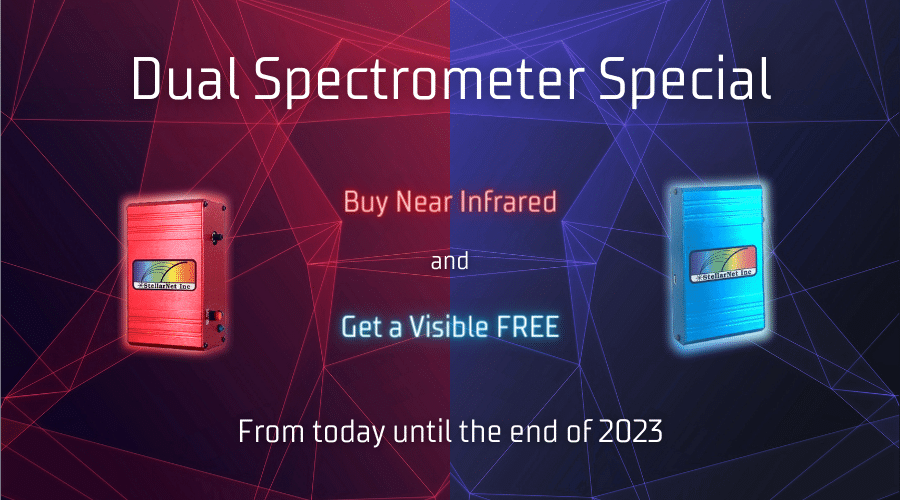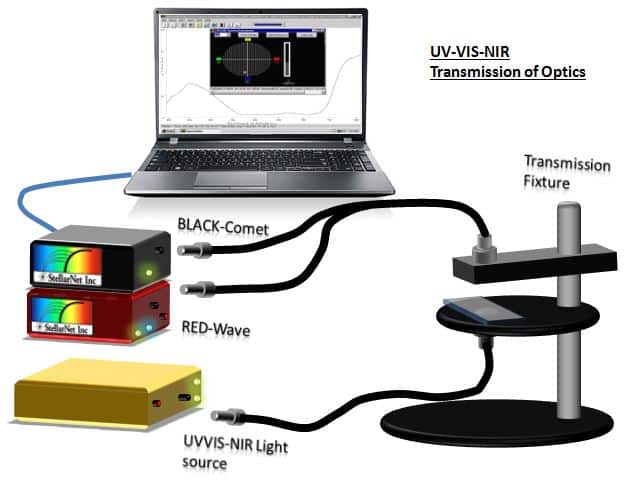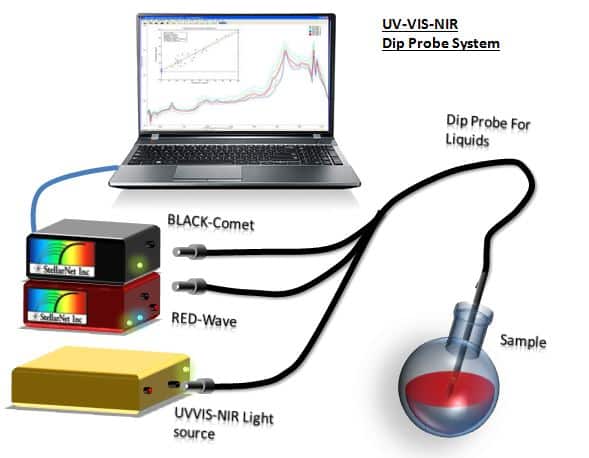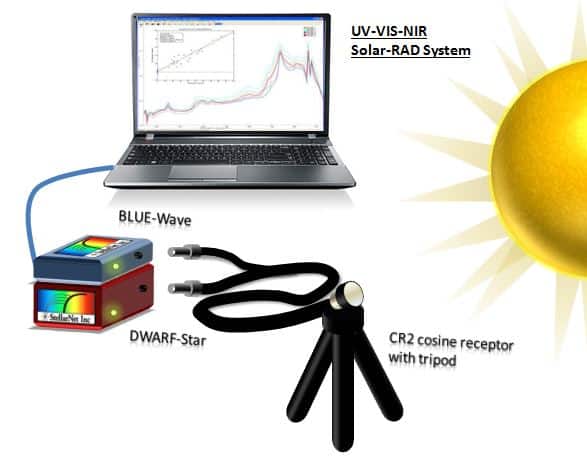
2023 Year End Dual Spectrometer Special – Buy a NIR get a VIS FREE!
From: StellarNet
Posted On: 16 Nov 2023
Dual Spectrometer Special

Lasting until the end of 2023, StellarNet is offering incredible savings on all dual spectrometer systems that include a UV-VIS and NIR spectrometer.
Purchase a DWARF-Star NIR spectrometer (900-1700nm) and StellarNet will give you a BLUE-Wave-VIS spectrometer for FREE!
Buy our extended range RED-Wave-NIRX-SR spectrometer (900-2500nm) and receive a BLACK-Comet UV-VIS Spectrometer for FREE!



Dual VIS-NIR System for Transmission of Optics (350-2500nm)
BLACK-Comet-CXR-SR Spectrometer
RED-Wave-NIR Spectrometer
SL1-Filter Visible Light Source
F600-VISNIR fibre optic cable
F600-Y-VISNIR Y fibre optic cable
TXF-4 Transmission Fixture
Dual UV-VIS-NIR System for Chemical Absorption Measurements (200-2500nm)
BLACK-Comet-SR Spectrometer
RED-Wave-NIRX Spectrometer
SL5-CUV
F600-Y-UVVISNIR
Dual SpectroRadiometer VIS-NIR (350-1700nm)
BLUE-Wave-VIS spectrometer
DWARF-Star NIR spectrometer
F600-Y-VISNIR fibre optic cable
CR2 Cosine Receptor
IRRAD-CAL VIS & NIR
There are many different system configurations available. The above are just examples. Please request a quote to see your discount.
Savings lasts until the end of 2023!
Submit your order today
What is so different about NIR spectroscopy versus UV-VIS?
In the UV-VIS range atoms and molecules go through electronic transitions. When we measure the absorption of a chemical we are really measuring the change that the electrons undergo from being excited from one energy level to a higher energy level. We can visibly see this phenomenon in fluorescence spectroscopy (excited state to ground state). Objects have a certain color because of the light it reflects and absorbs (ground state to an excited state). There are many different applications for UV and VIS spectroscopy – including chemical absorbance, colourimetry, and fluorescence.
While UV-VIS spectroscopy measures the change in state of an electron, NIR spectroscopy measures the vibration of the atoms. As light is absorbed the molecules vibrate and create molecular overtone bands. Because these bands can be broad and complex we can use chemometric methods to determine composition of samples. Creating these calibrations can be laborious – but we can help with our SMART-NIRS calibrations. With NIR spectroscopy there is very little to no sample preparation. It is easy to analyse the composition of solids, liquids or powders. Common uses are composition analysis in agriculture, plastic sorting and recycling, and pharmaceutical and nutraceutical identification.
